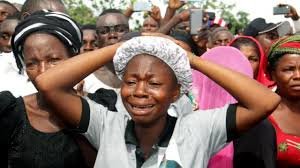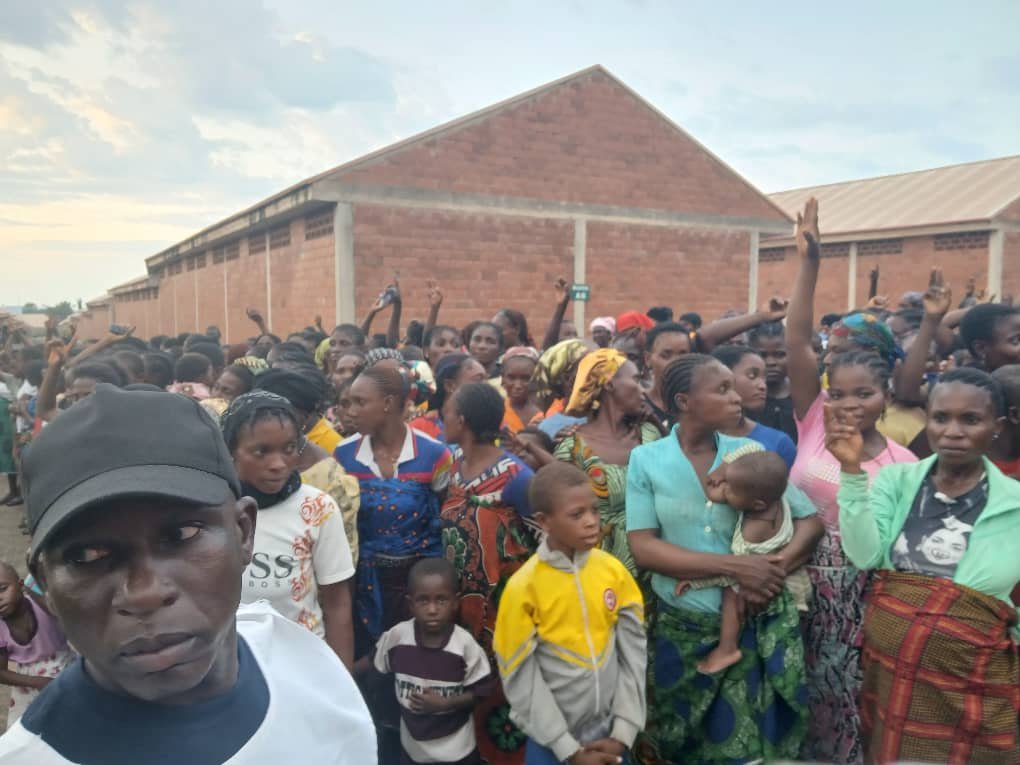In the aftermath of a deadly coordinated attack that left about 200 people dead in Yelewata and Daudu communities of Guma Local Government Area, Benue State, Abuja residents have expressed outrage and disappointment at the government’s continued failure to halt bloodshed in the region. The attack, reportedly carried out late Friday night by suspected herdsmen, claimed the lives of internally displaced persons (IDPs), women, children, and five security operatives.
In a series of interviews conducted by Africa Health Report in Abuja, concerned Nigerians called on the government to take decisive action to end the killings and protect civilians in the region.

“It’s Political, Government Has the Power to Stop It” — Tony Ugbaja
In these interviews with our reporter, Dennis Gabriel, Mr. Tony Ugbaja described the recent killings as a continuation of the long-standing violence in Benue State, noting that the situation deteriorated under former President Muhammadu Buhari.
“The killings didn’t start today,” Ugbaja said. “They became rampant during Buhari’s tenure, especially in Agatu. But what’s alarming is that in recent weeks, the crisis has escalated again. Sadly, we haven’t seen any real commitment from the current government.”
He criticized the perceived inaction of federal authorities, suggesting that the crisis may be politically motivated.
“If the killings are political, then political solutions should be used to end them,” he said. “The government has the might. They can stop this. They are just playing politics with the lives of innocent citizens in Benue. What they need to do is deploy more security forces and go after these killers, whatever name they go by. The carnage must stop.”
“Benue Feeds the Nation — Food Crisis Is Looming” — Elder Akim Bami Segun
Elder Akim Bami Segun also condemned the massacre, warning that continued violence in Benue — known as the “food basket of the nation” — could trigger a national food crisis.
“This is barbaric,” he said. “If people can’t go to the farm, what happens? There will be hunger. Benue has the largest population of farmers, and they are being displaced and killed.”
While acknowledging some efforts by government, Elder Segun questioned the role of the Benue State governor.
“What is the governor doing? He should work hand in hand with the federal government. They receive security allowances — what are they doing with it? If he takes the right steps, the President will support him.”
He urged the federal government to convene a coordinated security strategy.
“We have security personnel in this country. The government should call them together and give them the mandate to act. I believe by the grace of God, they can stop this.”
“Redeploy Top Security Officers — They’ve Been Compromised” — Chief Arem
Chief Arem, another Abuja resident, admitted to not knowing the full details of the killings but insisted that a compromised security system was to blame.
“Those behind the killings are evil doers and terrorists,” he said. “But the security forces there aren’t doing enough. The government should redeploy all top officers — the Commissioner of Police, military heads — because the current team appears compromised.”
He emphasized the geographical positioning of Benue as landlocked by neighbouring states, which he said made it implausible for attackers to vanish without trace.
“Benue is surrounded by Nasarawa, Kogi, Taraba, and Cross River. If you’re attacked in the middle, the attackers must have passed through a neighbouring state — and that’s where we should be looking. They must have a base in one of those states.”
Chief Arem called for regional collaboration and cross-border intelligence to trace and dismantle the networks behind the killings.
As the grief deepens across Benue State, many Nigerians — like those interviewed in Abuja — continue to demand urgent, sustained, and transparent action from both state and federal governments. The growing sentiment is that without political will, accountability, and a clear security strategy, the killings will persist — with devastating humanitarian and national consequences.



